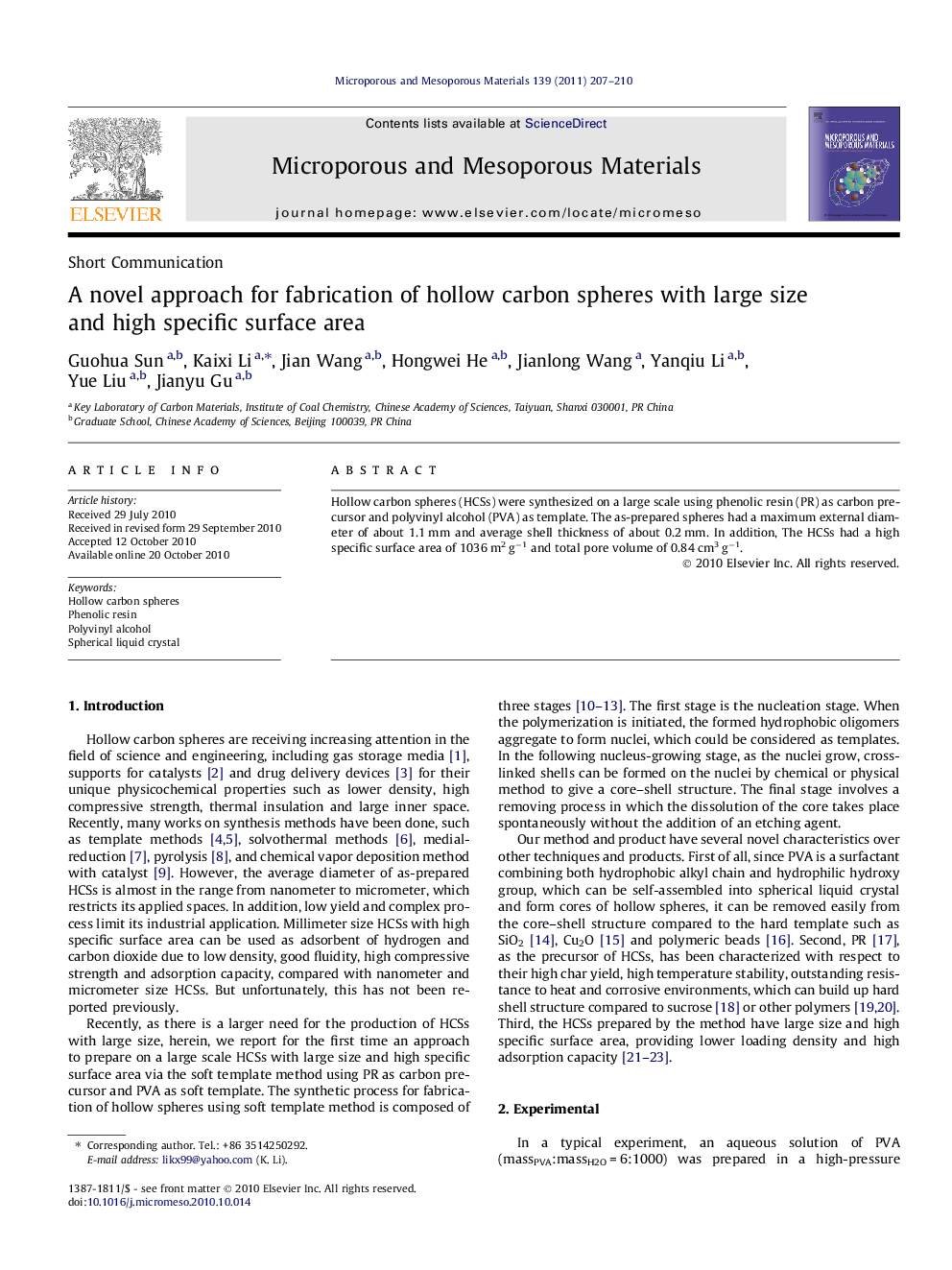| Article ID | Journal | Published Year | Pages | File Type |
|---|---|---|---|---|
| 75020 | Microporous and Mesoporous Materials | 2011 | 4 Pages |
Hollow carbon spheres (HCSs) were synthesized on a large scale using phenolic resin (PR) as carbon precursor and polyvinyl alcohol (PVA) as template. The as-prepared spheres had a maximum external diameter of about 1.1 mm and average shell thickness of about 0.2 mm. In addition, The HCSs had a high specific surface area of 1036 m2 g−1 and total pore volume of 0.84 cm3 g−1.
Graphical abstractA soft template method is successfully developed to prepare high yield and proportion of hollow carbon spheres with large diameter of about 1.1 mm and specific surface area of 1036 m2 g−1 by crosslinking phenolic resin in an aqueous solution of polyvinyl alcohol at 403 K.Figure optionsDownload full-size imageDownload as PowerPoint slideResearch highlights► Our method and product have several novel characteristics over other techniques and products. ► First of all, the synthetic processes including the synthesis of the core, the formation of the shell, and the collapse of the core, are simple and easy operational. ► Second, phenolic resin, as the precursor of hollow carbon spheres, can build up hard shell structure compared to other polymers. ► Third, hollow carbon spheres prepared by the method have large size (1.1 mm) and high specific surface area (1036 m2 g−1), providing lower density and high adsorption capacity. ► Therefore, these spheres can be used as adsorbent of hydrogen and carbon dioxide.
